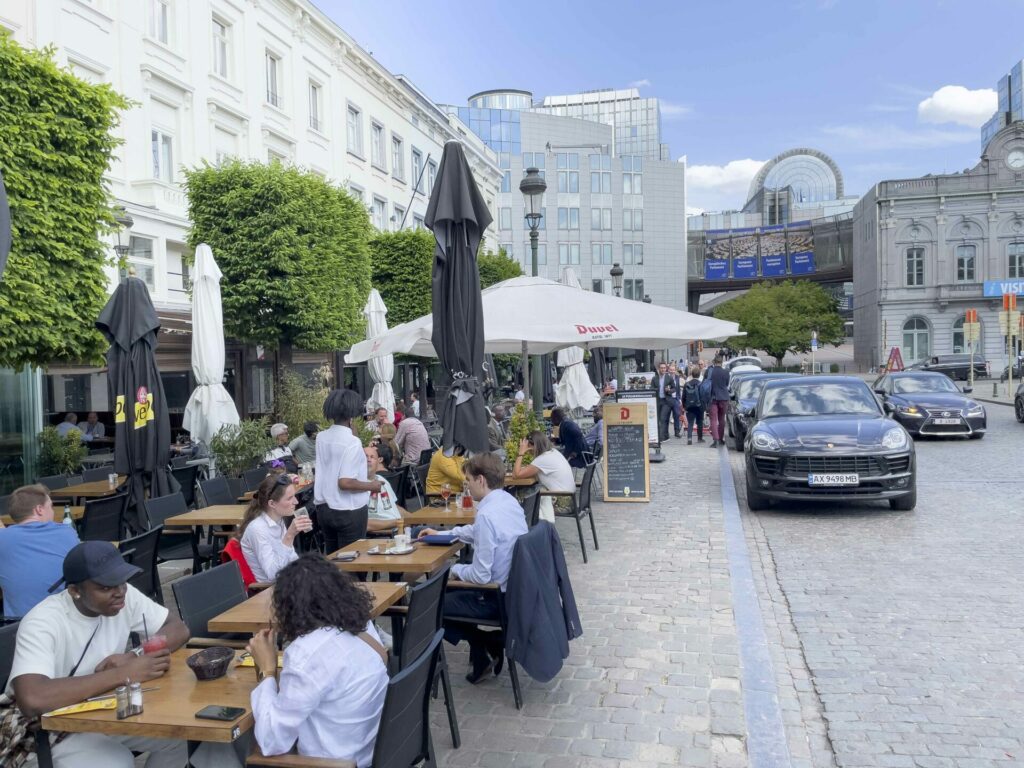Sipping a drink or having a bite to eat on a parking spot or pavement in Brussels has become commonplace since bars and restaurants were allowed to extend their terraces during the pandemic. Now, the scheme is officially here to stay.
To limit the impact of Covid-19 measures on the hospitality sector, the Brussels region allowed bars, cafés and restaurants to temporarily create or expand terraces in public spaces without needing a permit exemption if they met certain conditions. The scheme was so successful that the region decided to extend it until September 2024.
"Our goal was to make it easier to create a terrace; looking at the streets of Brussels on a sunny day, it is clear this has been a great success," Damiaan De Jonge, spokesperson for State Secretary for Urban Development Pascal Smet, told The Brussels Times.
"This summer, people will once again see many temporary terraces popping up all over the region." While Smet's cabinet didn't cite exact figures, it estimates that hundreds of these terraces were put up across the region last year.
In the City of Brussels alone, 220 requests for the creation of "seasonal terraces" have been registered this year already. The permit exemption is only enforced between 1 April and 31 October and/or during end-of-year festivities. Requests continue to pour in, La Libre Belgique reported.
Permanent fixtures
As was hinted at last year, Smet has now made the temporary fixture permanent in the new version of the Regional Urban Development Ordinance called Good Living, which will come into force in September 2024.
"This means that even after the summer of 2024, these terraces will become fixtures in the streetscape for an infinite period of time," De Jonge said. However, the seasonal nature of the terraces will remain in place. "By dismantling these terraces before the winter, when they aren't used, they don't take up public space unnecessarily."
The ordinance will include basic rules, including the requirement to leave sufficient space for pedestrians and cars. The terrace height must also be in line with the pavement. If establishments comply with these rules, they don't need a permit exemption, for which the application can be complex.

